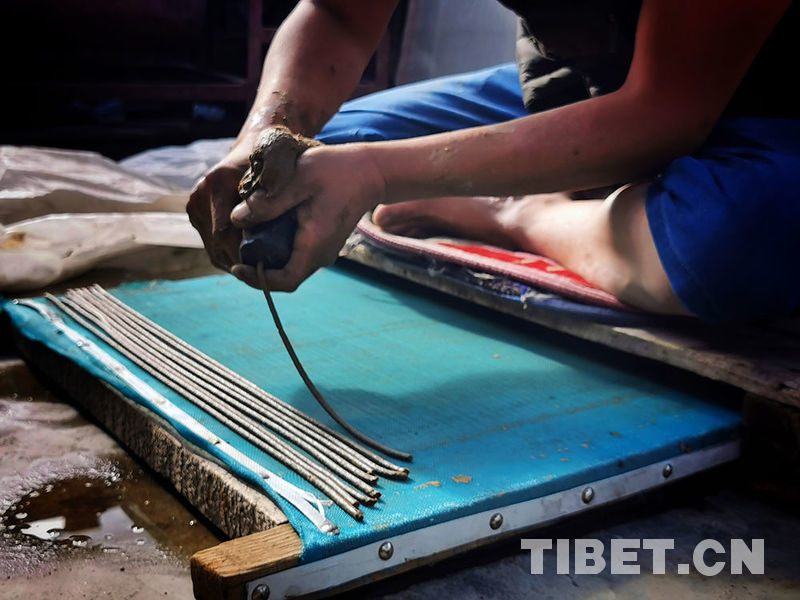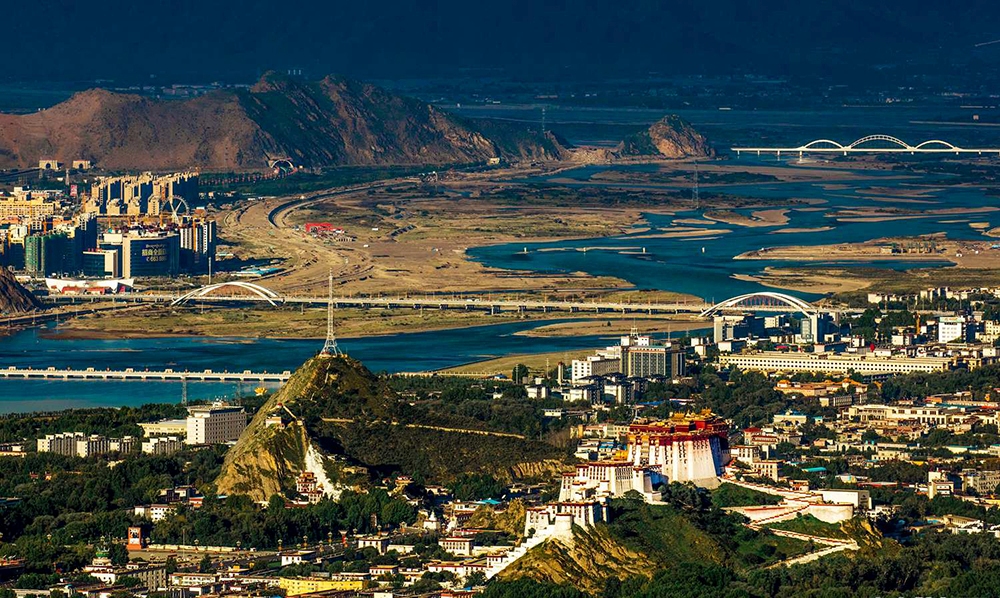A lot of changes and big hopes for the future
FIRST IMPRESSIONS in 1992:
My first time visit to Yunnan Province of China was in 1992. Together with my parents, my sister and my brother we went to visit my father`s family in Shangri-La in Dechen Tibetan Autonomous Prefecture. The last of our three flights of this long journey eventually lead us to Kunming, the main hub to travel onwards to the then remote areas of Southwestern China.
When I arrived in China, it felt like like another world to me. Through the glimpse of a 12 year old it felt surreal, it was a stranger land but where people looked like me. From the airport to the city I grabbed a window seat and was spellbound by the swarms of people and bicycles on the bustling streets. Everyone seemed so busy, vividly going after their chores. I could hear them shouting and blabbering. The only thing I understood was the laughing. One had to be there to relate to the magic of the old Kunming in the early nineties! Many of my nowadays friends there were not even been born at that time.
Back then, there was no highway to the Dechen Tibetan Autonomous Prefecture where my paternal family originates from. It was an over 20-hours bus ride that had to bring us from Kunming to my family in Dechen. The driver had to carefully maneuver through dangerous mountain slopes, while I enjoyed the bumpy roads and stunning view on the ride from the lush subtropical hill-lands of central Yunnan to the southeastern Qinghai-Tibet Plateau.
When we arrived in Dechen, I expected snowy mountains and streets. But it was all muddy paths and greenery. Sounds like a very boring place, but hey, we have been kids. I enjoyed it a lot! Lots of animals, fire crackers, and all my extended family around me (a huge crowd). We stayed the night at the bonfires and I was using hand and feet to communicate with my cousins who spoke in an unintelligible dialect very distinct from mine. Even though I met them the first time, I instantly felt a deep bond to my family there. I knew eventually that we all belong together.
On the way home, we rented a whole bus to take my relatives in Dechen to Kunming with us. For most of my cousins, it was their first trip to the capital of the province. We visited stone forest and sneaked into the video game rooms, where the epic game Street Fighter 2 just hit the markets. One Swiss franc was more than enough to play the whole afternoon. Imagine how exciting this was for us kids. We were all in discovery mode. One of my cousins, who was already sixteen, was fascinated by the bathtub in our hotel room. He filled it with water, stayed in the water for only about 5 seconds and came out happy like he won in the lottery.
Even though it was just for a few weeks. Saying goodbye was hard. I remember we all had to cry our hearts out at the airport.
A year later, we also visited Lhasa, which was more developed. Due to the myriads of sacred sites in the Tibet Autonomous Region, we spent most of the time visiting monasteries, one after another. Drinking butter tea, after butter tea. Now that I am older I understand the importance of the monasteries to the local communities. But as a kid, I remember, I didn’t want to sit still but to rather be outside playing with the other kids still having in mind my previous stay in Dechen.
LANGUAGE AND CULTURE
In 2008 I decided to learn Chinese. A lot of things have changed in China. I felt like I need to leave my comfort zone and look for a new challenge and new experiences. So I went to Beijing and studied at the Beijing Language and Culture University (BLCU) and at the Beijing University.
Meanwhile having been several times in China, I wanted to explore this huge country with its ancient civilization and dynamic development. With lots of curiosity, I told myself to fully immerse in this experience and to be as nonjudgmental as I can be. The best way to engage with different cultures seemed to me to discover and emphasize rather mutualities than distinctive traits.
Beijing in 2009 was a modern and diverse city, I don’t remember missing anything but friends and family. What I was most curious about, was to figure out how life in China would be. I had encounters with locals and listened to the experiences of colleagues. To break that question even more down, how would life be as a Tibetan in China who was born overseas. So I like to share one impression of my first year studies in China.
One was the memorial day after the Earthquake in Wenchuan, an area highly populated by Tibetans. There was a different mood among in people in the capital city. Somehow it felt as all of Beijing stood still for a day...... My Chinese teacher made an attempt to explain to us unaware students what actually happened but her emotions overcame her and she started crying,… despite that moment, her message never came across to other students. But for me, this was a revealing moment of truth. I could feel her pain and her sincere human compassion towards Tibetan people. I needed to let that sink in. And also I tried to learn more myself, and figured out how millions of private people, corporates and government agencies all over China, all worked together to help in this misery.
During my time in Beijing I was a student of language and life. I felt very welcome as a Tibetan in China, the people seem to make no difference. I met lovely people and shared great memories, with locals and also with other friends, who have been on the same journey there.
WORK AND LIFE EXPERIENCE
In 2012, I had the opportunity to go back to my hometown Shangri-La in Dechen, Yunnan, to support a relative, who had the idea to establish a brewery in the highlands of Shangri-la. I conclude that is a good way to get deeper insights how a society works is by actively participating in their economy.
In Dechen there is a deep sense of community, grown over the centuries and shaped by the local culture. I was impressed how collectively connected the people in Dechen are in their communal life, in the good and in the bad. There were colorful celebrations of weddings, newborns, and anniversaries. But there were also collective traumas due to tragedies, accidents and fires. I experienced moments when people really had to put their heads together, and collectively solve their members problems and solace each others mourning. While those events were distinct in their nature from collective celebrations, I realized that their overall inclusive and community-based approach to cope with with the good and the bad represents the essence of the local social fabric and strengthens their communal ties.
The most important day in those 8 years in Dechen was when my wife gave birth to a healthy boy in the Dechen hospital. In 2019, I myself had a weeklong stay with a surgery in another local hospital. The service was great, the nurses very friendly. A main doctor and assisting doctor and other assistants performed the three hour intervention. The magic practicioners duo were both locals, home breed Decheners. One of them was a Han-Chinese, born and raised in the same town like many Tibetans, Naxi, Yi and other local minorities. To all of them, this place was the place they were born and raised, shared the same upbringing and life experiences and therefore called it just their “Home”.
The infrastructure in Dechen is nowadays way better than it used to be in 1992 and keeps evolving. Every time I came back from business travel the place looked different. You can order everything on the internet and get it in a few days. You can fly from Kunming to Dechen in less than one hour and several times a day. Imagine, our ancestors had a week long hike from Shangri-La just to Lijiang, risking their lives. Today, we can drive there in a less than two hour highway ride. Soon there will be a high speed railway, that connects Dechen with Lijiang, via Dali to Kunming. It is therefore evident that many things changed since my first visit in the early nineties. Our hometown is in a constant cycle of transforming, of trying to better itself. It grows a bit slower compared to other regions, but with local characteristics. Live in Shangri-La is nowadays way more modern, diverse and innovative while the same communal sense earlier mentioned still applies and builds the ground for a harmonious co-existence.
Generations of young local people will come, some graduating from universities all around China, while their cultural upbringing remains somewhat still traditional. Some of them might return to Shangri-La and participate in developing their home region while others might decide to stay in already modernized cities elsewhere in China and follow their own course of life. I most welcome the people who actively take part in the shaping of the community and culture. Those people, who have a constructive and peaceful approach to improve the future of this community. But we also have to let go those members of our young generation who decide to remain in large cities after their graduation in order to fulfill their dreams. I am quite confident that they will find themselves in a conducive environment there because there are basically no differences between my Beijing-based Chinese teacher`s empathy for Tibetan people shown after the Wenchuan earthquake and the solidary ties of the local communities in Shangri-La. Rather it is the same bond between people that shape a society into the good.
My message for the kids is, that I am rooting for you, keep going and keep shining.
Since 2019 December we are in Switzerland and I have not yet been ready to travel back, not only because of Covid-19, also because I am still working on my new endeavor in Switzerland. If you interested to hear more, you are welcome to follow me on my private WeChat channel. I decided to share few videos from our lives in Switzerland, and later upload some impressions of our little adventures in China.
(Author: Gyalzur Tseten Dorje)
Tibet Stories

Tibetan incense, a popular industry in Nyemo, Tibet
Tibetan incense is a kind of incense with Tibetan characteristics. It is made from more than...

